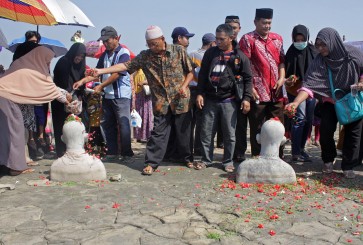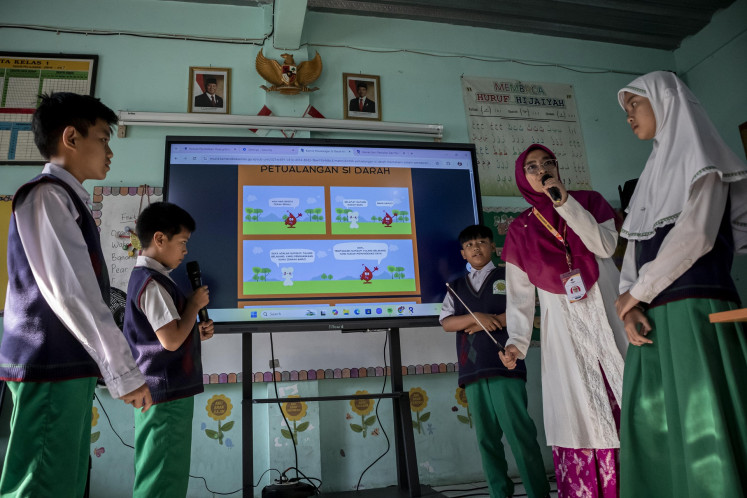Central bank offers more realistic outlook for 2016 budget
The nationâs central bank has proposed a more realistic outlook for the deliberation of the 2016 state budget, saying that uncertainty would still overshadow next yearâs development
Change text size
Gift Premium Articles
to Anyone

The nation's central bank has proposed a more realistic outlook for the deliberation of the 2016 state budget, saying that uncertainty would still overshadow next year's development.
In a meeting with House of Representatives' Commission XI overseeing finance, Bank Indonesia (BI) Governor Agus Martowardojo said next year's gross domestic product (GDP) would probably grow between 5.2 and 5.6 percent.
'The projection is lower than what we estimated before with a range of 5.4 to 5.8 percent. We think global trade will not have fully improved next year and commodity prices will not have bounced back,' he said on Tuesday.
It was the first working meeting at the commission to follow up on the 2016 state budget draft. Besides Agus, Finance Minister Bambang Brodjonegoro and Central Statistics Agency (BPS) head Suryamin also attended the meeting.
Agus specifically mentioned the country's top eight export commodities ' copper, coal, palm oil, rubber, nickel, tin, aluminum and coffee ' whose prices had continued to fall for the past few years and had thus impacted exports.
'In 2015, the prices of these eight commodities have declined by an average 20 percent, while other commodities have fallen by around 16 percent,' he said.
However, Agus argued that the central bank's new GDP growth projection was still in line with the government's own forecast of 5.5 percent stated in the 2016 state budget draft.
'It is also higher than our range of 4.7 to 5.1 percent for 2015 because the government's investment, especially infrastructure investment, will help support domestic demand,' he added.
Besides setting a new forecast on the GDP, BI proposed new exchange rate assumptions in the meeting.
BI now sets its average rupiah exchange rate at between 13,400 and 13,900 per US dollar, a revision from the previous range of 13,400 to 13,700 per US dollar, but within the 13,400 rate assumption fixed by the government.
According to Agus, the central bank made the adjustment by considering the latest exchange rate fluctuation and 'the high uncertainty persisting in the global money market.'
In 2015 alone, the rupiah has depreciated by an average 16.3 percent against the greenback.
On Wednesday, it continued its losing streak and reached its lowest level in the last five years, ending at 14,459 per US dollar, shown by data from Bloomberg.
BI, however, maintained its conviction that the country's ongoing structural reforms would play a key role in maintaining GDP prospects and attracting foreign direct investments. These things in turn would work to prop up the currency.
The meeting ended with no definite result and is scheduled to continue on Monday.
Andreas Eddy Susetyo, a lawmaker with the Indonesian Democratic Party of Struggle (PDI-P), said that the meeting should have taken place after the US Federal Reserve wrapped up its September meeting.
The Fed is slated to hold its Federal Open Market Committee (FOMC) meeting on Sept. 16 to 17, an event that many predict will see the Fed maintain its policy rate.
However, Andreas' comment was met with criticism from Golkar Party politician Airlangga Hartarto, who argued that the FOMC meeting result should not dictate the direction of Indonesia's economy.









